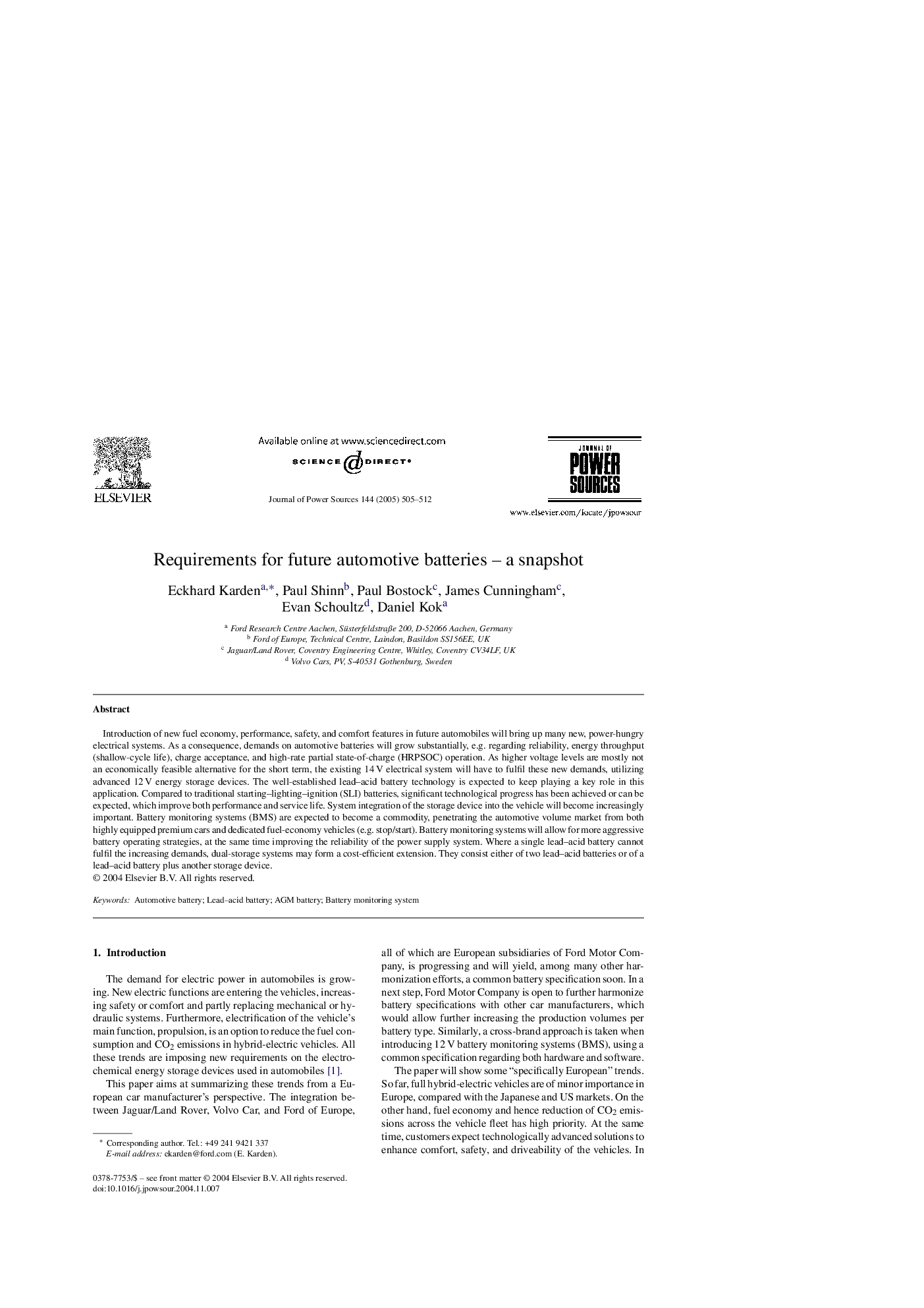| کد مقاله | کد نشریه | سال انتشار | مقاله انگلیسی | نسخه تمام متن |
|---|---|---|---|---|
| 10568078 | 973367 | 2005 | 8 صفحه PDF | دانلود رایگان |
عنوان انگلیسی مقاله ISI
Requirements for future automotive batteries - a snapshot
دانلود مقاله + سفارش ترجمه
دانلود مقاله ISI انگلیسی
رایگان برای ایرانیان
موضوعات مرتبط
مهندسی و علوم پایه
شیمی
الکتروشیمی
پیش نمایش صفحه اول مقاله

چکیده انگلیسی
Introduction of new fuel economy, performance, safety, and comfort features in future automobiles will bring up many new, power-hungry electrical systems. As a consequence, demands on automotive batteries will grow substantially, e.g. regarding reliability, energy throughput (shallow-cycle life), charge acceptance, and high-rate partial state-of-charge (HRPSOC) operation. As higher voltage levels are mostly not an economically feasible alternative for the short term, the existing 14Â V electrical system will have to fulfil these new demands, utilizing advanced 12Â V energy storage devices. The well-established lead-acid battery technology is expected to keep playing a key role in this application. Compared to traditional starting-lighting-ignition (SLI) batteries, significant technological progress has been achieved or can be expected, which improve both performance and service life. System integration of the storage device into the vehicle will become increasingly important. Battery monitoring systems (BMS) are expected to become a commodity, penetrating the automotive volume market from both highly equipped premium cars and dedicated fuel-economy vehicles (e.g. stop/start). Battery monitoring systems will allow for more aggressive battery operating strategies, at the same time improving the reliability of the power supply system. Where a single lead-acid battery cannot fulfil the increasing demands, dual-storage systems may form a cost-efficient extension. They consist either of two lead-acid batteries or of a lead-acid battery plus another storage device.
ناشر
Database: Elsevier - ScienceDirect (ساینس دایرکت)
Journal: Journal of Power Sources - Volume 144, Issue 2, 15 June 2005, Pages 505-512
Journal: Journal of Power Sources - Volume 144, Issue 2, 15 June 2005, Pages 505-512
نویسندگان
Eckhard Karden, Paul Shinn, Paul Bostock, James Cunningham, Evan Schoultz, Daniel Kok,